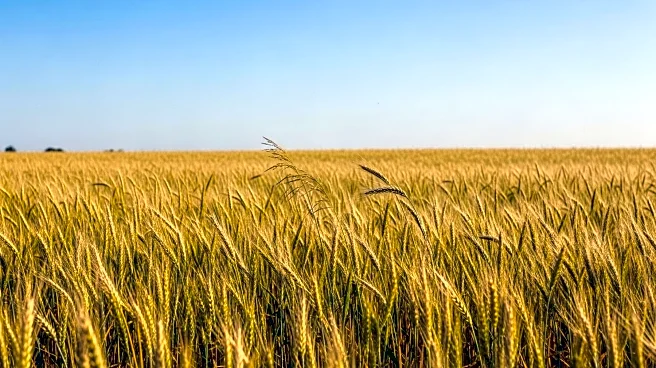What's Happening?
Agriculture remains a fundamental industry, providing essential resources that sustain life and enable civilization to flourish. Despite modern urbanization and technological advancements, farming is as critical today as it was thousands of years ago. The global population is expected to reach nearly 10 billion by 2050, necessitating substantial increases in agricultural production. This challenge is compounded by climate change, limited arable land, water scarcity, and environmental concerns, making agricultural innovation and sustainability more important than ever. Agriculture plays a multifaceted role in society, providing food security, driving economic development, supplying raw materials for industries, maintaining environmental balance, preserving cultural heritage, and supporting national security.
Why It's Important?
Agriculture's importance is underscored by its role in ensuring food security, driving economic development, and supporting national security. It provides the foundation for human advancement by freeing people to pursue occupations beyond food production. The sector supports billions of livelihoods worldwide and contributes significantly to GDP and international trade. Sustainable farming practices help combat climate change and preserve ecosystems. As global demand for food and resources grows, investment in agricultural research and sustainable practices is crucial to meet future needs while protecting environmental resources.
What's Next?
Continued investment in agricultural research, support for farmers, and development of sustainable practices are necessary to meet growing food demands and protect environmental resources. Enhancing agricultural productivity and sustainability will be key to addressing challenges posed by climate change, water scarcity, and limited arable land. The sector must adapt to changing conditions and innovate to ensure food security and economic stability.
Beyond the Headlines
Agriculture's role extends beyond economic contributions, influencing cultural heritage and national security. It preserves traditional knowledge and practices, strengthens community bonds, and maintains cultural continuity. Agricultural self-sufficiency is a national security concern, ensuring countries can feed their populations during international conflicts or trade disruptions.










